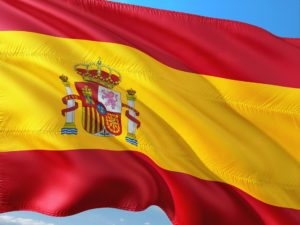We’ve been seeing it everywhere lately. CBD infused energy bars, chocolate, coffee, water, and even wine. But is it safe? Or better yet, are CBD edibles even legal?
While it’s still largely a grey area in most places, there are a few regions that have recently taken the route of officially banning any CBD-based food products. The first to make headlines about this was California last month, and now, the Spain challenged CBD edibles and declared that CBD is allowed for “external-use only”.
So, what’s with this shift in gears? And why is it coming so late after many food related CBD businesses have already been established? In case you are wondering, no, there have been no reported sickness from these products, so CBD edibles are most likely safe. But nevertheless, in both of these scenarios, governing bodies decided it’s best to wait until the FDA (Food and Drug Administration) – or in Spain, the AESAN – establish some laws regarding these products.
Since cannabis has been illegal for so long in the United States, it’s always been under control of the DEA (Drug Enforcement Agency). But with laws changing regarding not only the flowers themselves, but all the extracts as well, these products are now becoming the responsibility of other government agencies.
The situation is very similar in Spain, with a lack of definitive laws causing mass confusion. Until now, CBD based food products in Spain have been marketed as food supplements, but under Spanish law food supplements can only contain added vitamins and minerals, not plant matter.
Are CBD Edibles Illegal?
It definitely sounds strange, but that’s just how it is when it comes down to the technicalities of a law. What seems like a fairly simple solution (i.e. to regulate CBD as a regular food product instead of a supplement) might take years and years of litigation to come by. But it’s definitely on the horizon and a few countries have already seen the benefit in regulated CBD as a food product or supplement. The Czech Republic was first, followed by Germany, Holland, and Italy.
The United States still has no official laws on this matter, aside from the recent changes in California.










Where did you read that CBD oils are illegal in Spain?
When reading:
http://www.aecosan.msssi.gob.es/en/AECOSAN/web/para_el_consumidor/ampliacion/complementos_alimenticios.htm
I can quote:
—-
By application of the principle of mutual acknowledgement, food supplements that contain ingredients other than the vitamins and minerals indicated in the authorised lists may be placed on the Spanish market only in the event that it is verified that the product in question may be placed on the market legally in another European Union Member State. It is not, however, permitted to apply said acknowledgement to products coming from countries that do not belong to the European Union.
—-
So when CBD products are imported from an other EU member state where CBD oil is legal (let’s say Holland) it is legal to sell these products on the Spain market.
You should really check your sources and facts because this is a very misleading article!!!
Did you just ask a question and answer it yourself?
Because what you wrote is correct and the loophole to supply Spain .
That doesn’t mean it is legal in Spain !
If you produce in Spain and register your product there you can only register it as comsetics, not food, not sublinguals and thus NOT edibles, and I don’t think you can say an edible gummy is cosmetic.
We check our sources and know what we are talking about, you interprate it as you like.
THANK YOU FOR CLARIFICATION. I WAS WORRIED THERE FOR A MOMENT, CONSIDERING I AM IN THE PROCESS OF STARTING MY OWN CBD STORE ONLINE.
Hi Victor if you are intending to open a CBD store I would recommend you send CBD-Testers an email to verify supply for you and advise on shipping methods because this topic is very complex and Opening a shop is easy.
Staying open is another story.
Send message to [email protected]